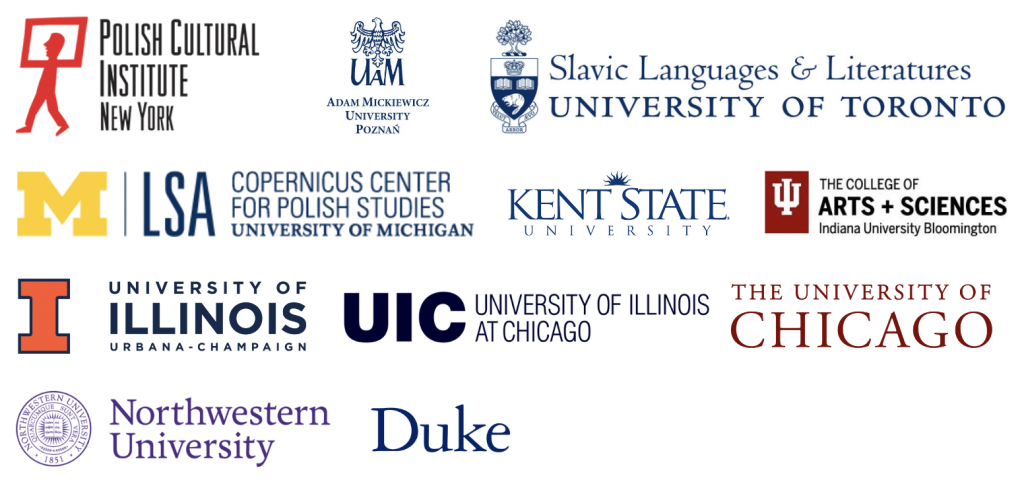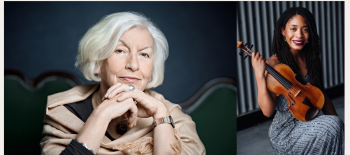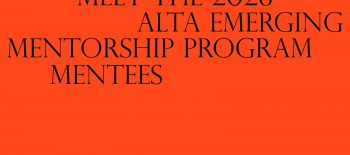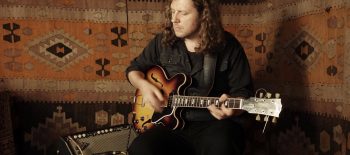November 1, 2021
Episode 10 and all video recordings are available at:
Polish Cultural Institute New York YouTube
Encounters with Polish Literature is a new video series for anyone interested in literature and the culture of books and reading. Each month, host David A. Goldfarb will present a new topic in conversation with an expert on that author or book or movement in Polish literature. More about the Encounters with Polish Literature series and the timeline.
Reportage or creative non-fiction is the most productive genre of contemporary Polish literature. It is literature of fact based on interviews with real people, on documentation, and on library research. It is more real than realist fiction, but employs the narrative and rhetorical techniques of fiction. It is akin to history, but is less concerned with data and statistics than how events in the past felt to those who lived through them. New institutions have formed since 1989 to train and cultivate journalists and to provide venues for publication of this new literature in periodical form and in books.
In this episode we try to figure out where the literary is in literary non-fiction, and what constitutes fact in this genre. We look at a few of the predecessors of contemporary Polish reportage, picking up some observations we made in our episode on Zofia Nałkowska about the overlap between realist fiction and literary non-fiction, and casting a glance at Melchior Wańkowicz, who was both a journalist and a publisher with a literary sensibility influenced by experimental writers in Polish, Russian, and other languages, and we consider the pivotal figure of Ryszard Kapuściński, who shaped the postwar future of reportage in Poland through his use of allegory, irony, mały realizm or the use of minor figures to illustrate larger issues, his crafting of characters based on interviews who speak in their own voices, and through the sheer poetry of his language.
Then we discuss the work of Małgorzata Szejnert, who as an editor trained many reporters who are part of the current generation of long form journalists, and we examine at her own book recently translated into English, Ellis Island: A People’s History. Finally, we consider one of the writers mentored by Szejnert, Magdalena Grzebałkowska, who attempts to figure out what the Second World War should mean for her generation, born around thirty years after the end of the war, and takes on taboo topics such as looting, the fate of German civilians expelled from the Polish “Recovered Territories,” and the conflicted memories of survivors who had been children in a Jewish orphanage, in her recently translated book, Poland 1945: War and Peace.
Look out for part two of our examination of Polish reportage in two months, when we will consider Filip Springer’s History of a Disappearance: The Story of a Forgotten Polish Town and Katarzyna Boni’s Ganbare! Workshops on Dying, about the Fukushima disaster of 2011.
Selected works discussed or mentioned in this episode:
Grzebałkowska, Magdalena. Poland 1945: War and Peace. Tr. John Markoff and Małgorzata Markoff. Pittsburgh: University of Pittsburgh Press, 2020.
Kapuściński, Ryszard. The Emperor: Downfall of an Autocrat. Tr. William R. Brand and Katarzyna Mroczkowska-Brand. New York: Vintage International, 1989.
Ryziński, Remigiusz. Foucault in Warsaw. Tr. Sean Gasper Bye. Rochester, N.Y.: Open Letter Books, 2021.
Szabłowski, Witold. How to Feed a Dictator: Saddam Hussein, Idi Amin, Enver Hoxha, Fidel Castro, and Pol Pot through the Eyes of Their Cooks. Tr. Antonia Lloyd-Jones. New York: Penguin, 2020.
Szejnert, Małgorzata. Ellis Island: A People’s History. Tr. Sean Gasper Bye. London: Scribe Publications, 2020.
Ziołkowska-Boehm, Aleksandra. Melchior Wańkowicz: Poland’s Master of the Written Word. Foreword by Charles S. Kraszewski. Tr. Agnieszka Maria Gernand. Lanham, Md.: Lexington Books, 2013.
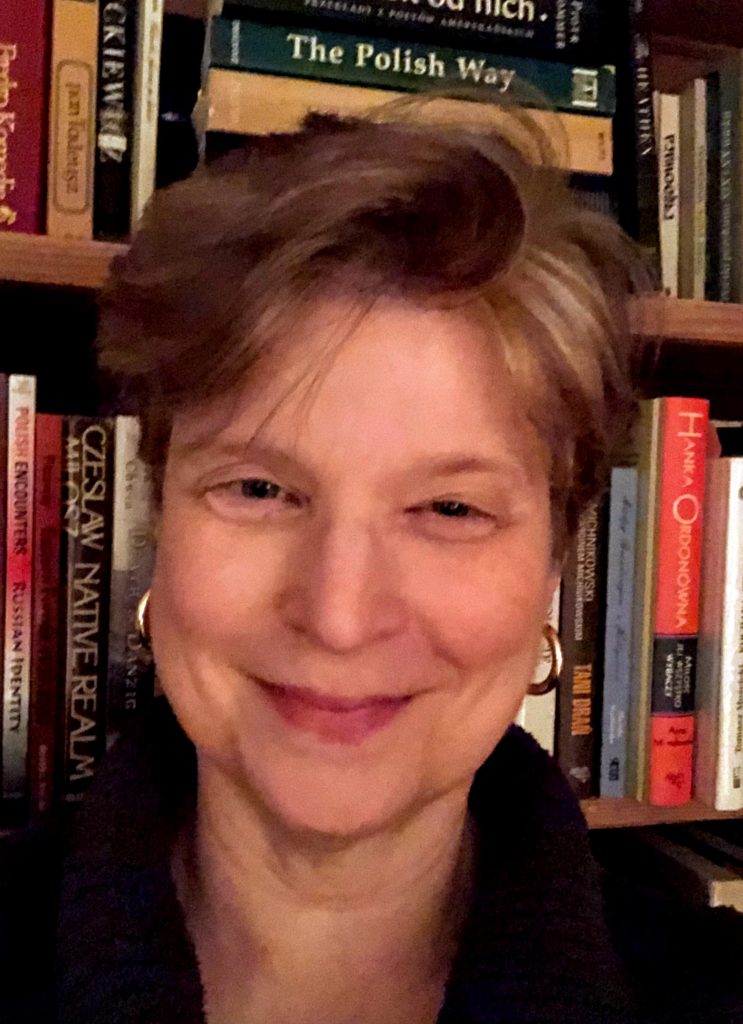
Beth Holmgren, Professor of Polish Studies and Russian Studies at Duke University, has published widely on Polish literature, theater, popular culture, and film; Russian literature, film, and women’s studies; and Russian and Polish artists and performers in the North American diaspora. Her scholarship and work in the field have won multiple national awards. Her recent scholarship focuses on Polish Jewish cultural history of the interwar period, Polish film from the 1930s until the current day, and 21st-century Polish reportage. Her book Warsaw is My Country (2018), which is a cultural biography of Krystyna Bierzynska, an acculturated Jewish Varsovian who served as a 16-year-old orderly in the 1944 Warsaw Uprising, was based in large part on her interviews with her subject. Holmgren’s most recent book, co-authored with Professor Helena Gościło (The Ohio State University), is Polish Cinema Today: A Bold New Era in Film, which explores the reflorescence and great thematic diversification of Polish film in this century. Contextualizing and analyzing scores of Polish films on themes ranging from representations of the Catholic Church’s influence and prewar/wartime/postwar Jewish-gentile relations to the experience of migrant Poles and portraits of queer identity, Polish Cinema Today provides a smart introduction to general film scholars and students as well as cinephiles.
In addition to her continuing work on various editorial boards of book series and journals, Holmgren served as President of the Association of Slavic, East European, and Eurasian Studies in 2008 (the largest organization in the Slavic field outside the region itself), during which period she helped oversee the Association’s move to a new, financially less exorbitant location and the hiring of several new staff members. Holmgren served as President of the Association for Women in Slavic Studies for the 2003-2005 term; AWSS has been a major resource for female scholar/teachers’ career development, access to publication venues, and celebrating women’s achievement. At Duke, Holmgren is proud to hold secondary appointments in Theater Studies and Gender/Sexuality/Feminist Studies, and to serve as a core faculty member for Jewish Studies.
This year, in 2021, the Graduate Student Essay Prize of the Association for Slavic, East European, and Eurasian Studies this year has been renamed “The Beth Holmgren Graduate Student Essay Prize.”
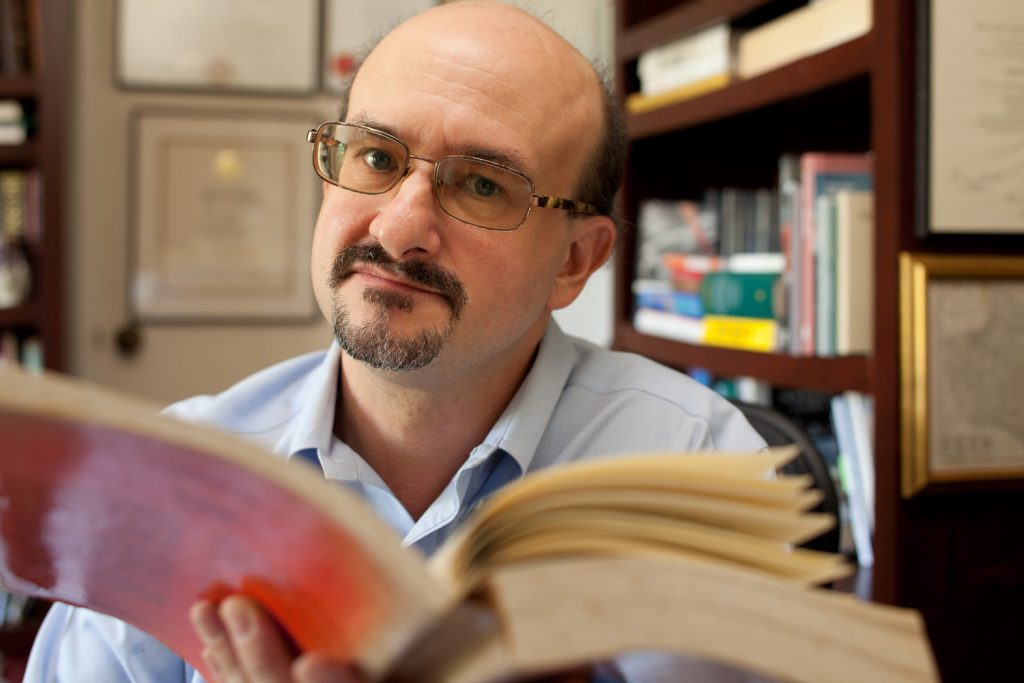
David A. Goldfarb is an independent scholar of Polish literature and literary theory, a literary translator from Polish to English, and a liaison for Polish authors to US publishers. In 2018 he translated feature articles and interviews from Wysokie Obcasy—the weekly women’s supplement to Poland’s main independent daily paper Gazeta Wyborcza—for Newsmavens.com, a pan-European women’s news portal. From mid-2010 to the end of 2013, he was Curator of Literature and Humanities Programming at the Polish Cultural Institute New York, a diplomatic mission of the Ministry of Foreign Affairs of the Republic of Poland. Prior to that he served as Assistant Professor of Slavic Literatures and Comparative Literature at Barnard College, Columbia University.
He holds a doctorate in Comparative Literature from the Graduate Center of the City University of New York as well as an M.A. in Slavic Languages and Literatures from the University of Toronto, and a B.A. in Philosophy from Cornell University and Deep Springs College. He has published articles on Bruno Schulz, Zbigniew Herbert, Stanisław Ignacy Witkiewicz, Mikhail Lermontov, and East European cinema in such journals as East European Politics and Societies, Indiana Slavic Studies, Philosophy and Literature, Prooftexts, The Polish Review, Slavic and East European Performance, and Jewish Quarterly, and he has published book chapters on Jozef Wittlin, Witold Gombrowicz, and Nikolai Gogol and Giuseppe Arcimboldo. He has written the introduction and notes for Tolstoy’s “The Death of Ivan Ilych” and Other Stories and Turgenev’s Fathers and Sons for the Barnes and Noble Classics series, and for the Penguin Classics edition of the The Street of Crocodiles and Other Stories by Bruno Schulz.
Bartek Remisko, Executive Producer
David A. Goldfarb, Host & Producer
Natalia Iyudin, Producer
This project is part of 21-anniversary celebration of Polish Cultural Institute New York.
Partners:
